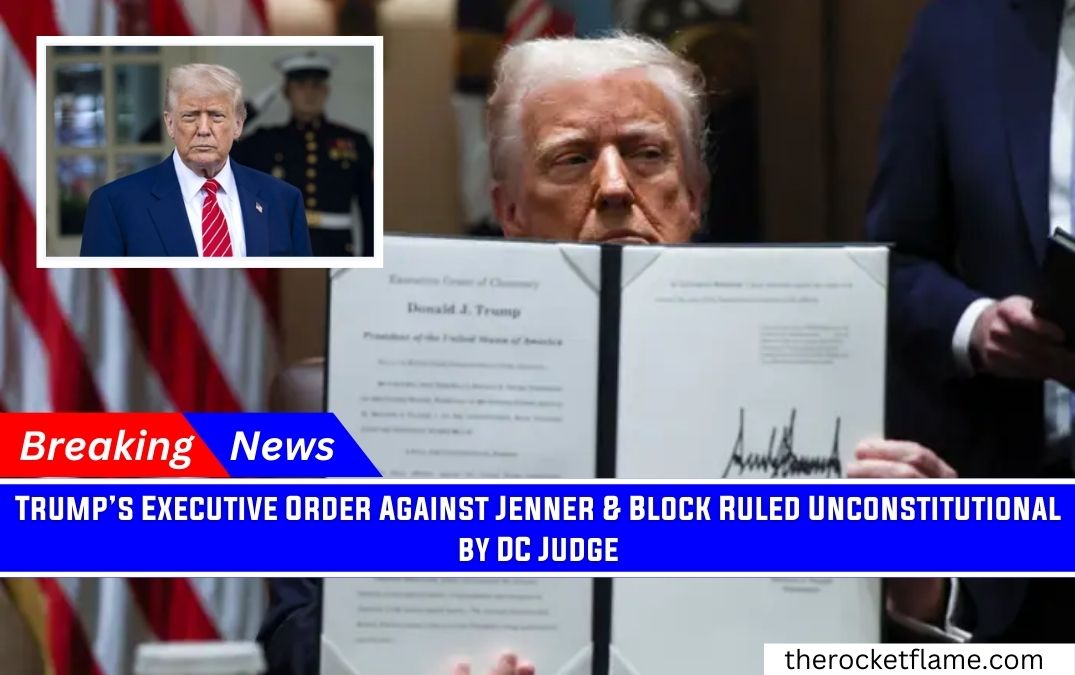A federal judge has ruled that former President Donald Trump’s executive order targeting law firm Jenner & Block was unconstitutional.
The order, which revoked security clearances and threatened government contracts, was struck down for violating First Amendment rights.
What Happened
On Friday, U.S. District Judge John Bates ruled that Donald Trump’s executive order against the law firm Jenner & Block was unconstitutional.
The order had revoked the security clearances of Jenner attorneys and mandated a review of the firm’s federal contracts.
This marks the second time a Trump-era executive order aimed at a major law firm has been overturned in court.
Key Details
Judge Bates, appointed by President George W. Bush, issued a scathing opinion.
He stated the executive order retaliated against Jenner & Block for engaging in protected speech and called it “viewpoint discrimination.”
The judge emphasized that the order attempted to silence constitutionally protected legal advocacy.
In particular, the order targeted attorney Andrew Weissmann, who was part of the Mueller investigation into Trump’s ties to Russia.
Trump’s directive described Weissmann’s career as one of “weaponized government and abuse of power.”
Reactions or Statements
Jenner & Block issued a public statement applauding the decision.
“We are pleased with the court’s decision to decisively strike down an unconstitutional attack on our clients’ right to have zealous, independent counsel,” the firm said.
“This ruling demonstrates the importance of lawyers standing firm on behalf of clients and for the law.”
The White House did not respond to a request for comment following the ruling.
Investigation or What’s Next
The federal government has the option to appeal the decision.
If appealed, the case will move to the U.S. Court of Appeals and potentially to the Supreme Court.
Judge Bates noted that further retaliatory actions by the former president would not be surprising but would still be subject to constitutional limits.
Other similar orders, including those targeting Perkins Coie, Susman Godfrey, and Wilmer Hale, have also faced judicial pushback or temporary blocks.
FAQs
What was Trump’s executive order about?
It revoked security clearances for Jenner & Block attorneys and ordered a review of the firm’s federal contracts due to political bias allegations.
Why did the judge find it unconstitutional?
Judge Bates ruled that the order violated First Amendment protections, particularly due to its viewpoint discrimination.
Who is Andrew Weissmann?
A partner at Jenner & Block, Weissmann served as a lead prosecutor in the Mueller investigation into Trump’s Russia connections.
What does this mean for Jenner & Block?
The firm can now continue representing clients without federal interference tied to the executive order.
Can the ruling be appealed?
Yes. The federal government can challenge the ruling in the appeals court or escalate it to the Supreme Court.
Summary / Final Takeaway
The federal court ruling against Trump’s executive order marks a strong affirmation of constitutional protections for legal representation and free speech.
Jenner & Block’s legal victory highlights growing judicial resistance to politically motivated actions targeting law firms.












